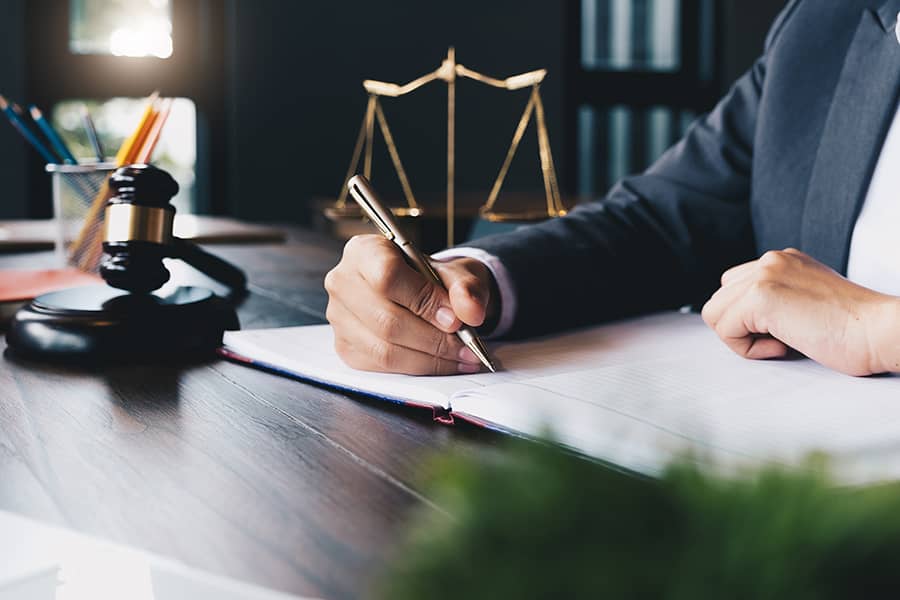In Illinois, licensed professionals who’ve violated professional regulation rules shouldn’t bank on waiting out the IDFPR—the Department has five years to investigate possible violations.
Professionals in dentistry, nursing, and veterinary medicine are held to high standards through the Illinois Dental Practice Act, Illinois Nurse Practice Act, and Illinois Veterinary Medicine and Surgery Practice Act, respectively. These laws provide guidelines for disciplinary actions and when they may be imposed.
When IDFPR is made aware of potential violations of the laws or rules, it can launch a disciplinary investigation.
In many cases, IDFPR acts quickly when there is a violation of the act or rules, such as the committing of a felony or even failing to complete continuing education requirements. While it’s often the case that the IDFPR acts quickly, laws pertinent to each professional field often grant the IDFPR five to seven years to initiate an investigation into a potential violation.
Five-to-Seven Year Statute of Limitations Period in Professional Laws
Under the Illinois Dental Practice Act (225 ILCS 25/23(40)), proceedings to suspend, revoke, or take disciplinary action must be initiated within five years after the Department receives a complaint or notice for any alleged violation. The statute also specifies that, except for cases involving fraud in obtaining a license, no action can be initiated more than seven years after the date of the incident or act in question, regardless of when the complaint was received.
For licensees who’ve violated other states’ professional laws, the statute of limitations is even longer. The Dental Practice Act, for instance, considers out-of-state violations to be violations of Illinois law so long as one of the grounds for the discipline is the same or substantially equivalent to those set forth within the Dental Practice Act. 225 ILCS 25/23(18).
The statute of limitations period doesn’t begin tolling when the violation occurs in another state; it’s when a licensee with a record of a violation of another state’s professional law seeks admission to practice in Illinois. The act states that “the time during which the holder of the license was outside the State of Illinois shall not be included within any period of time limiting the commencement of disciplinary action by the Department.” 225 ILCS 25/23(40).
For example, a dentist who wants to get licensed in Illinois and has been operating for 20 years with a clean history in Texas still needs to disclose that 22 years ago he was charged with a DUI while practicing in Texas and his license was put on probation for one year. Even though the violation was more than seven years ago, the statute of limitations begins the moment the dentist begins the licensure process in Illinois.
Similarly, the Illinois Nurse Practice Act (225 ILCS 65/70-55) and the Illinois Veterinary Medicine and Surgery Practice Act (225 ILCS 115/25) both contain a statute of limitations stipulating that proceedings to suspend, revoke, or take disciplinary actions regarding nursing licenses must be initiated within five years after the commission of any act that constitutes grounds for discipline. In both acts, the time spent outside Illinois after being charged does not begin tolling until a licensee requests a license in Illinois.
Settlements and Negligence Extensions
Depending on the profession, some regulations even provide additional time for the Department to investigate certain civil judgments and settlements. Under the Nurse Practice Act, if there’s a settlement or judgment in favor of the claimant being “rounded on” the allegation that a person licensed under this Act was negligent in providing care, the Department has an additional 2 years from the settlement or judgment date to initiate disciplinary proceedings (225 ILCS 65/70-55). Under the Veterinary Medicine and Surgery Practice Act, an additional period of one year is allowed for investigating and initiating disciplinary proceedings following the settlement of certain claims or lawsuits alleging negligence. Both these laws are examples of how the statute of limitations period can continue to get longer depending on the violation
The Dental, Nursing, and Veterinary Practice Acts in Illinois are common in their approach to discipline but not all profession laws are the same. If you are facing issues related to the issuing or renewing, revocation, and/or suspension of your professional license in Illinois, contact the professional license defense attorneys at 1818 immediately so we can protect your professional license and career. Contact us today to discuss your options.



